- Home
- Linda Lael Miller
Bridget Page 2
Bridget Read online
Page 2
Then they were alone in the small, shadowy space, side by side. Bridget could feel Trace’s gaze resting on her face, but meeting his eyes took some doing. Every time she looked at him, it weakened her somehow, made her want to sit down and fan herself like some scatterbrained girl at a cotillion.
“Why did you come here?” she demanded.
His expression was solemn and, at the same time, intractable. “Because I promised Mitch I would,” he said. “Two days before he was drowned, he got your letter telling him Noah had been born. He was happy, of course, but it was hard for him, being so far away. After a while, he turned reflective.” Trace paused, rubbed the back of his neck with one hand. “He made me swear I’d look after you, if he didn’t make it home.”
Bridget knew the details of Mitch’s drowning—Trace had described the scene to her in a letter, his words so vivid that she sometimes forgot that she hadn’t been there, hadn’t witnessed the tragedy herself—but the mention of his death brought stinging tears to her eyes all the same. “Damn you,” she whispered. “Haven’t you done enough?”
He took the spatula from her hand and, grasping her shoulders gently, turned her to face him. “What the devil do you mean by that?” he demanded in a hoarse whisper.
“You know what I mean,” Bridget hissed back. “If it hadn’t been for you, Mitch would never have gone to war. Noah and I wouldn’t have to make our way without him. How dare you come here, like some storybook knight in shining armor, when—when—”
“When it was all my fault?” he asked in that same low tone. The words were knife-sharp, for all their softness, honed to a dangerous edge.
It was no use trying to hide her tears, so she didn’t make the attempt. For some reason, it seemed all right to cry in front of Trace, though she’d taken great care in the years since the war began to make sure she was alone when she could no longer control her emotions. “Yes!” she cried. “Yes! Mitch wasn’t like you. He was guileless and sweet, and he believed everyone else was just as good, just as honest, just as kind. He would have done practically anything you asked him to, and damn you, Trace, you had to know that!”
Trace shoved a hand through that shaggy, light-streaked hair of his. He needed barbering in the worst way, clean clothes, and a bath, too, and for all that, Bridget felt the ancient shame, the powerful, secret pull toward him. She had never confessed that weakness to anyone, could barely acknowledge it to herself.
“Mitch had a mind of his own,” he rasped. In his eyes, the ghosts of a hundred fallen soldiers flickered, one of them his best friend from earliest memory. “You make him sound like some kind of idiot. I didn’t make him join the fight—he knew it was something he had to do. Hell, we all did.”
They stared at each other for a long moment, like winter-starved bears fixing to tie in, tooth and claw. The air seemed to buzz and crackle at Bridget’s ears, and she could feel her own heartbeat thundering in every part of her body. She told herself it was anger and nothing else. Nothing else.
“He had a wife and a child,” she said finally. Shakily. “Granddaddy needed him on the farm. We needed him.”
“Sweet Lord in heaven, Bridget,” Trace reasoned with weary patience, “just about everybody had to leave something or someone behind, Federals and Rebs alike. Did you think you were the only one who made sacrifices?”
Sacrifices? What did he know about sacrifices, with his ready smile and the whole of his life still ahead of him? Bridget wanted to slap the man, but she managed to hold on to her dignity. It wouldn’t do to set a bad example for Skye and Noah by resorting to violence, however great the temptation. She sniffed. “I should have known that you wouldn’t accept responsibility.”
He leaned in until his nose was barely an inch from hers. His eyes seemed to flash with blue and green sparks. “I’ll ‘accept responsibility’ for anything that’s my doing,” he snapped, “but I’ll be damned if I’ll let you blame the whole war on me!”
“I don’t see how you can stop me,” Bridget pointed out. “And I’ll thank you not to use profane language in my house.”
Color surged up Trace’s neck and flared along his beard-stubbled jaw. “You haven’t changed, you know that?” And then, just as suddenly as his whole countenance had turned to fury, he grinned, all jovial good nature. “It’s good to know that some things—and some people—stay the same.”
Bridget was reconsidering her previous decision not to slap him. “You can’t stay here,” she insisted. “It’s simply out of the question.” She looked around at the humble dwelling, with its dirt floor and oil-barrel cookstove, perhaps a little desperately. Even the bed had been scavenged along the westward trail, left behind by some other family. “This place is hardly big enough for Skye and Noah and me as it is—there’ll be talk in town—”
“I’ll make camp down by the creek,” he said. “And if folks have anything to say about my being here, you just send them to me.” He heaved a sigh. “Now, I think I’ll go out and have a look at those horses of yours, if that’s all right with you.”
“As if you cared one whit about my opinion on anything,” Bridget huffed.
He was still grinning. It was an unfair advantage, that disarming smile of his, bright as noonday sun spilling across clear water. “I’ve missed you,” he said, and then he turned, and when Bridget let herself look, he was gone.
Damned if it wasn’t Sentinel, his own horse, penned in behind Bridget’s tumbledown shack of a house. At the sight of Trace, the stallion tossed his head and ambled over to greet him with a hard nuzzle to the shoulder.
Trace stroked the stallion’s white-splashed brow and spoke in a low voice. “I was afraid our paths might never cross again, fella,” he confided. The goose egg on the back of his head pulsed, a reminder of the morning ten days before, when a pack of renegade Paiutes had jumped him in camp. One of them had knocked him out cold, probably with the butt of an army rifle, before he had time to think, but he supposed he ought to be grateful they hadn’t relieved him of his boots, saddle, and watch while he was still facedown in the dirt. Not to mention his hair.
Sentinel blew affectionately, and Trace chuckled. “Looks like Miss Bridget’s gone to no little trouble to keep you here,” he observed, looking askance at the flimsy arrangement of branches and barrels posing as a corral fence. “I guess we oughtn’t to tell her you could have gotten out of this with one good kick. You were waiting for me, weren’t you, boy?”
Again, the horse nickered, as if to reply in the affirmative.
Trace glanced toward the house; even from outside, he could hear Bridget banging pots and kettles around. He turned his head, saw Skye and Noah chasing a squawking chicken around in the high grass, and smiled at the sight. You did good, Mitch, he thought. He’s a fine boy, your Noah.
“Skye!” Bridget called. She was probably in the dooryard, but Trace couldn’t see her for the cabin. “Stop that nonsense before you run the meat right off that bird!”
Trace looked heavenward. I’ll do my best, he promised. Then he turned back to the horse and patted its long, glistening neck. “You and I, we’ll just pretend we’re strangers for a while,” he said quietly.
The paint pawed the ground with one foreleg and flung his head, but Trace knew he’d go along with the plan, insofar as a horse could be expected to do.
Obediently, Skye closed in on the chicken and held it in both arms, and even from that distance, Trace could make out the bleak expression in her eyes. He moved toward her.
“I don’t want to kill it,” she confessed, and bit her lower lip. When she grew to be a woman—she was still just a girl in Trace’s eyes, and maybe she always would be—she would make some lucky man an exceptional wife.
“I’ll do it,” he said. “You take the boy inside before he meets up with a rattler.”
Skye nodded and smiled up at him with her eyes. “Thanks, Trace,” she said softly, and leaned down to take Noah’s small hand. Then, tentatively, she touched Trace’s arm. “I’m glad you
’re here. Bridget is, too, even if she can’t make herself admit it. You won’t let her run you off, will you?”
He glanced toward the cabin, with its pitiful canvas roof. Bridget had gone back inside to slam things around some more. That woman was hell on hardware. “She always make this much noise when she cooks?”
Skye laughed and shook her head. “No, sir. That particular commotion is in your honor for sure and certain,” she said, and set off through the high, sweet grass, the boy scrambling along behind her.
That night, sitting on stumps and crates under a black sky prickled with stars, they ate fried chicken for supper, along with cornmeal cakes and greens, and Trace could not recall a finer meal. He probably hadn’t had home-cooked food since before he joined the army, though he’d developed a taste for it as a boy. All the while he was growing up, he’d eaten with the McQuarrys whenever he was invited, which was often. Even back then, before she picked up and left, his mother hadn’t troubled herself much where such things were concerned. Tillie Qualtrough had been a loose woman, plain and simple, and she’d taken to camp following long before the war came and made a profitable enterprise of the habit.
All things taken into consideration, though, he couldn’t see any sense in faulting Tillie for the choices she’d made. She’d been alone in the world, with nothing to trade on but her looks. She’d done what she had to, that was all, and despite her circumstances, which would have turned a lot of people bitter, she’d been kind-hearted and quick to laugh.
“That’s a fine stallion you’ve got there,” Trace observed, when he’d eaten all he decently could. It seemed a safe topic to him, unrelated as it was to Mitch or to his staying on at Primrose Creek. “Where’d you get him?”
Bridget’s face softened at the mention of the animal; ever since she was a little girl, she’d loved critters the way some people do art or music or going to church. “I swapped the oxen for him,” she said, obviously proud of the deal. “I mean to breed him to my mare, Sis, and some others and eventually start myself a horse ranch.”
Trace raised his blue enamel coffee mug to his mouth, more because he wanted to hide his smile than because he needed any more of the brew. He’d be awake half the night as it was, remembering. Regretting. “I see,” he said. “I guess you wouldn’t consider plain farming.”
She sat up straight on the crate she’d taken for a chair, her half-filled plate forgotten on her lap. “Farming,” she scoffed. “This is timber country. Mining country. Ranch country.”
“We’ve got a nice vegetable patch, though,” Skye put in, and there was an anxious note in her voice, putting Trace in mind of somebody stepping between two opposing forces in the faint hope of keeping them from colliding. “Potatoes. Squash—” Her words fell away, like pebbles vanishing down the side of a precipice.
“You might not turn a profit for some time,” Trace observed, watching Bridget. “How do you intend to eat this winter?”
He knew he’d touched a nerve, for all that she tried to disguise the fact with her trademark bravado. “We might sell some of the timber. Mr. Jake Vigil is building a house and a sawmill at the edge of town, and he’ll be wanting trees.”
Trace assessed the towering ponderosa pines and firs surrounding them, blue-black shadows marching as far as the eye could see, in every direction. “Doesn’t look to me like he’d have any trouble getting all the lumber he wanted,” he said. He didn’t mean there wouldn’t be a market for McQuarry timber—not exactly, anyway—but Bridget took it that way and ruffled her feathers like a little partridge, making it necessary to take another sip of coffee.
“We have flour and salt. We have a shotgun for hunting, and thanks to a friend in town, we’ve got enough chickens to provide eggs and”—she looked down at her food—“the occasional feast. We will do just fine, thank you.”
Trace suppressed a sigh. He’d known this encounter wouldn’t be easy, but he’d been afoot for the best part of a week, and before that he’d spent so much time in the saddle that for a while there, he’d thought he might turn bow-legged. He was in no mood to grapple with a stiff-backed little spitfire like Bridget McQuarry.
You promised, Mitch’s memory reminded him.
Yes, damn it, I promised. And I’ll keep my word.
“I’ll need some timber for that roof,” he said in measured tones. “You have a saw? An ax, at least?”
Bridget pursed her lips, just briefly, but she looked pretty, even in a sour pose. Motherhood lent her a softness of the sort a man can’t really help noticing, no matter how hard he might try. “We can build our own roof,” she said. “Skye and I will do it ourselves.”
Trace rolled his eyes, but he kept a hold on his patience. Skye offered no comment but busied herself gathering up a fretful Noah and herding him inside to be swabbed down and put to bed. “And a fine job you’ve done, too,” he said dryly, nodding to indicate the canvas stretched across the top of the house. “Roof building, I mean.”
Even in the thickening twilight, he saw her color heighten. It made something grind painfully, deep inside him, seeing that. Instead of speaking, though, she just got up and started collecting the tin plates.
“Why can’t you just admit that you need help?” he asked, very quietly.
She straightened, and he saw—or thought he saw—tears glimmering in her eyes. “Oh, I can admit that, Mr. Qualtrough,” she said. “I’ve got a child and a young sister to feed and clothe. I have this house and this land and two horses and nothing else. I need help, all right. I just don’t need it from you.”
He sighed again. “You hate me that much?”
“No,” she answered, stiffening that ramrod spine of hers. “I’m completely indifferent.”
“You have to have a roof, Bridget. My being here would mean protection for Skye and Noah, if you won’t accept it for yourself. And somebody has to train that stallion. You’re good with horses, you always were, but you’re too small to handle him, and you know it.”
She was silent.
He pressed the advantage. “This is what Mitch wanted,” he said reasonably. “How can I ignore that? How can you?”
The plates rattled in her hands, and she wouldn’t look at him. “You’ll train the stallion—put on a roof—build a barn?”
“That and more,” he agreed.
She caught her upper lip between her teeth, something she’d done ever since he could remember. And that was a long time, since the McQuarry farm had bordered the little patch of no-account land where Trace and his mother had lived in what had once been slave quarters.
“No. Nothing more. You do those things, and we’ll be all right. It’ll ease your conscience, and you’ll move on like you ought.”
He stood, faced her, cupped her chin in one hand. “What are you so scared of, Bridge?” he asked. “You must know you have nothing to fear from me, not on your account and not on Skye’s.”
Her eyes flashed in the starlight; for a moment, he thought she was going to insult his honor by saying she was afraid of him, but when it came down to cases, she nodded. “I know that,” she whispered. “It’s just that—well, every time I look at you, I think of Mitch. I think of how he might have stayed home—”
Trace let her chin go. “Stayed home and done what?” he asked, at the edge of his patience. “Planted cotton and corn and sweet potatoes? Milked cows?”
Bridget pulled away. “There is no use in our discussing this,” she said, her tone on the peevish side. Then she snatched the coffee mug out of his hand, turned, and strode toward the cabin. If the boy hadn’t been asleep by then, or close to it, anyway, he knew she’d have slammed the door smartly behind her.
He watched as the lanterns winked out inside the house, first one, and then the other, and the sight gave him a lonely feeling, as if he were set apart from everything warm and sweet and good. It wasn’t the first time he’d felt like that; as a boy, he’d yearned to be one of the McQuarrys, instead of some long-gone stranger’s illegitimate son. During th
e war, far from the land and the people he knew, he’d ached inside, ached to go back to the Shenandoah Valley. After Mitch was drowned in the river that day, his horse shot out from under him, things had been a whole lot worse.
For a long time, he just sat there, mourning. Then, slowly, he turned his back on the cabin and headed for the makeshift camp he’d set up a hundred yards away, in the shelter of several tall oak trees growing alongside the creek. Rummaging in his saddlebags, he got out his spare shirt and a sliver of yellow soap. He kicked off his boots, still damp from his crossing earlier in the day, and then, downstream a little way, where he was sure he was out of sight of the house, he shed his clothes and waded, teeth chattering, into the icy waters of Primrose Creek. He made necessarily quick work of his bath, dried off with his dirty shirt, and pulled his trousers back on, his mind occupied, the whole time, with Bridget.
God only knew what she’d say when he told her they were getting married.
Chapter
2
Bridget did not receive the news with any discernible grace.
“Married?” She whooped, the next morning, as though he’d asked her to walk the ridgepole of a barn with a milk bucket balanced on her nose. She was poking around in the grass, looking for eggs and carefully setting the ones she found into an old basket. “Why, I’d sooner be tied to the hind legs of a bobcat and chewed free again.”
He felt himself flush hotly, from the neck up. Some women—lots of them, maybe, given the number of men killed on both sides of the war—would have counted him good husband material. After all, he was still young at twenty-four, and he was no coward, no shirker, no stranger to hard work. He had a few dollars in good federal gold hidden in the bottom of one saddlebag, and he cut a fine figure, if he did say so himself. Once, he thought, with a rueful glance toward the pitiful corral, where the stallion watched him even then, he’d even had a pretty good horse.

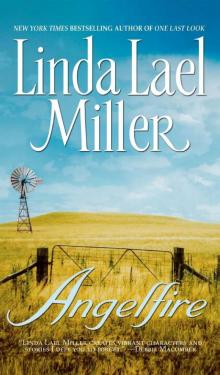 Angelfire
Angelfire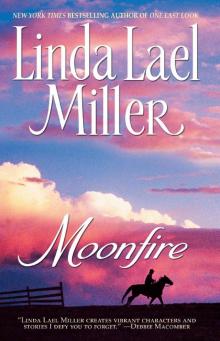 Moonfire
Moonfire The Yankee Widow
The Yankee Widow The Cowboy Way
The Cowboy Way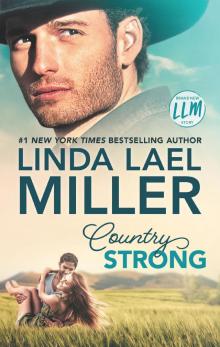 Country Strong--A Novel
Country Strong--A Novel Forever and a Day
Forever and a Day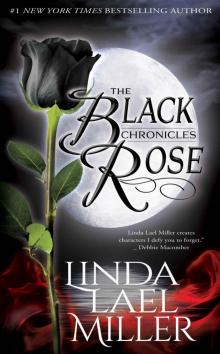 The Black Rose Chronicles
The Black Rose Chronicles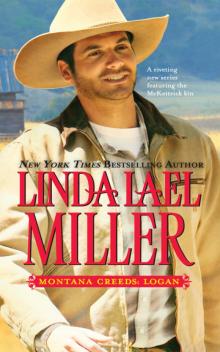 Montana Creeds: Logan
Montana Creeds: Logan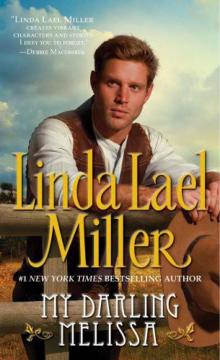 My Darling Melissa
My Darling Melissa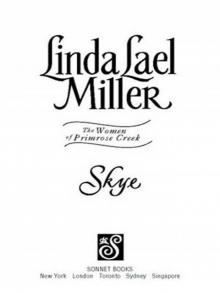 Skye
Skye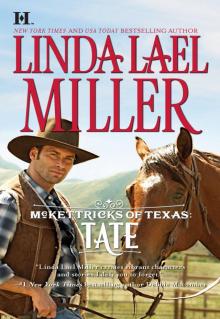 McKettricks of Texas: Tate
McKettricks of Texas: Tate Springwater Seasons
Springwater Seasons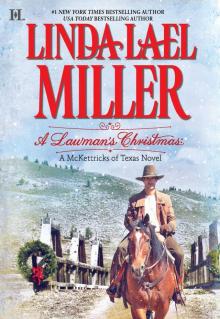 A Lawman's Christmas
A Lawman's Christmas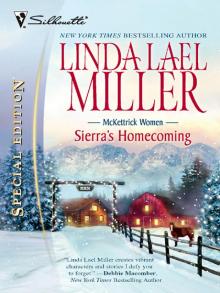 Sierra's Homecoming
Sierra's Homecoming![Parable, Montana [4] Big Sky Summer Read online](http://i1.bookreadfree.com/i/03/22/parable_montana_4_big_sky_summer_preview.jpg) Parable, Montana [4] Big Sky Summer
Parable, Montana [4] Big Sky Summer One Last Weekend
One Last Weekend A Stone Creek Collection, Volume 2
A Stone Creek Collection, Volume 2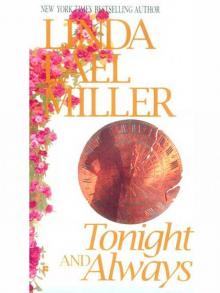 Tonight and Always
Tonight and Always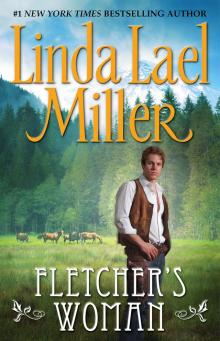 Fletcher's Woman
Fletcher's Woman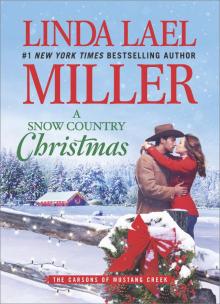 A Snow Country Christmas
A Snow Country Christmas The Last Chance Cafe
The Last Chance Cafe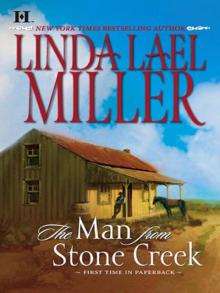 The Man from Stone Creek
The Man from Stone Creek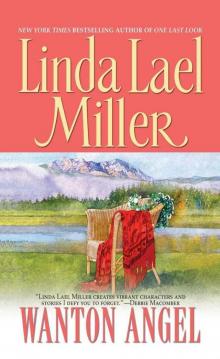 Wanton Angel
Wanton Angel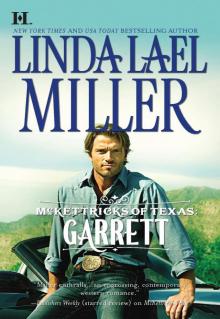 McKettricks of Texas: Garrett
McKettricks of Texas: Garrett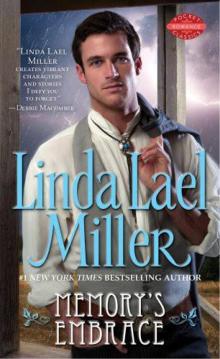 Memory's Embrace
Memory's Embrace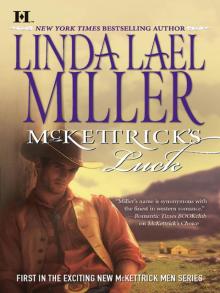 McKettrick's Luck
McKettrick's Luck Pirates
Pirates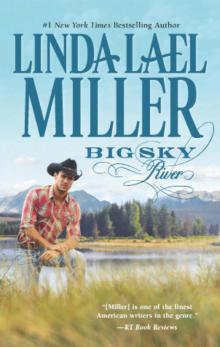 Big Sky River
Big Sky River Willow: A Novel (No Series)
Willow: A Novel (No Series)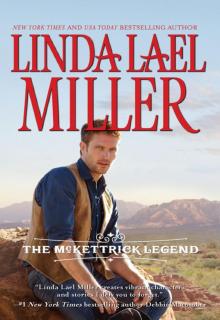 The McKettrick Legend: Sierra's HomecomingThe McKettrick Way (Hqn)
The McKettrick Legend: Sierra's HomecomingThe McKettrick Way (Hqn) Glory, Glory: Snowbound with the Bodyguard
Glory, Glory: Snowbound with the Bodyguard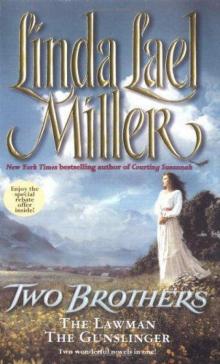 Two Brothers
Two Brothers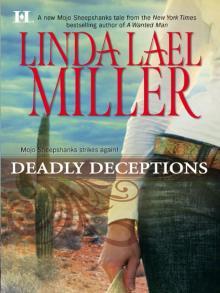 Deadly Deceptions
Deadly Deceptions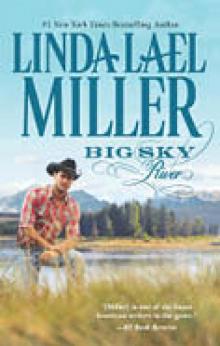 Big Sky Secrets
Big Sky Secrets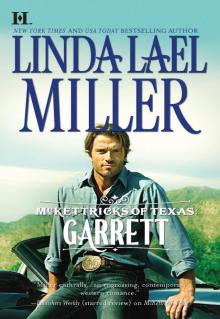 Garrett
Garrett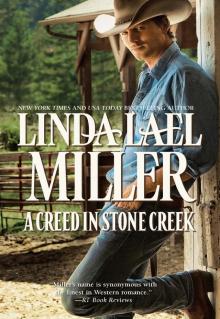 A Creed in Stone Creek
A Creed in Stone Creek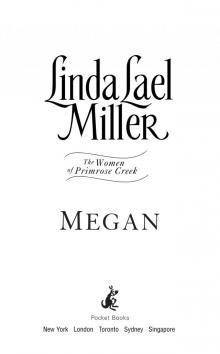 Megan
Megan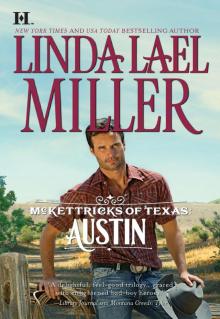 McKettricks of Texas: Austin
McKettricks of Texas: Austin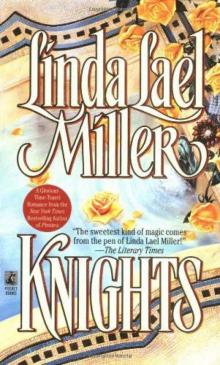 Knights
Knights High Country Bride
High Country Bride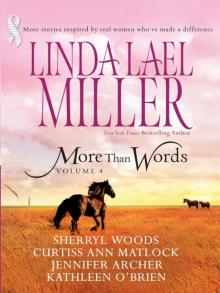 More Than Words Volume 4
More Than Words Volume 4 Glory, Glory
Glory, Glory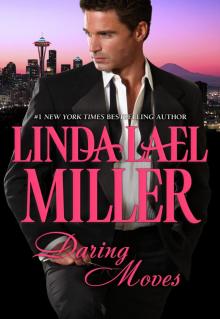 Daring Moves
Daring Moves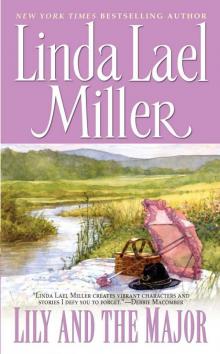 Lily and the Major
Lily and the Major Courting Susannah
Courting Susannah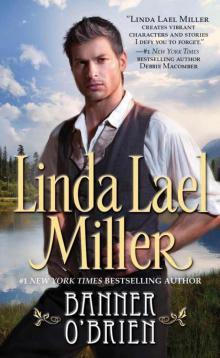 Banner O'Brien
Banner O'Brien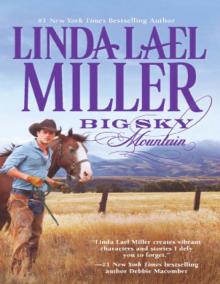 Big Sky Mountain
Big Sky Mountain Linda Lael Miller Bundle
Linda Lael Miller Bundle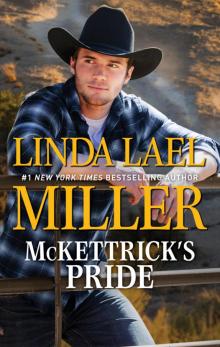 McKettrick's Pride
McKettrick's Pride A Stone Creek Collection Volume 1
A Stone Creek Collection Volume 1 A Wanted Man
A Wanted Man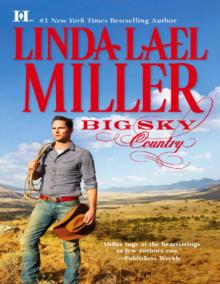 Big Sky Country
Big Sky Country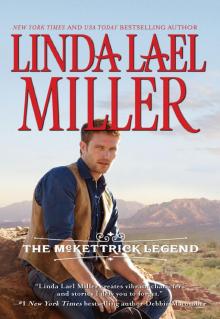 The McKettrick Legend
The McKettrick Legend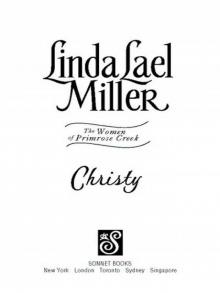 Christy
Christy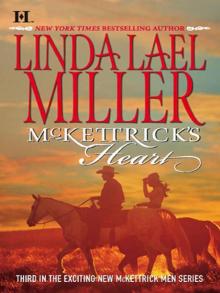 McKettrick's Heart
McKettrick's Heart Resurrection
Resurrection Arizona Heat
Arizona Heat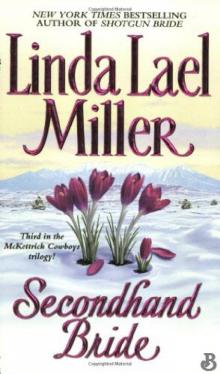 Secondhand Bride
Secondhand Bride Snowflakes on the Sea
Snowflakes on the Sea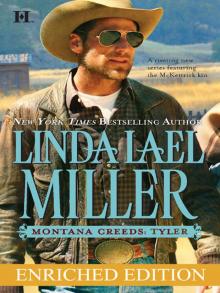 Montana Creeds: Tyler
Montana Creeds: Tyler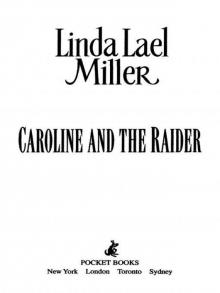 CAROLINE AND THE RAIDER
CAROLINE AND THE RAIDER A Proposal for Christmas: State SecretsThe Five Days of Christmas
A Proposal for Christmas: State SecretsThe Five Days of Christmas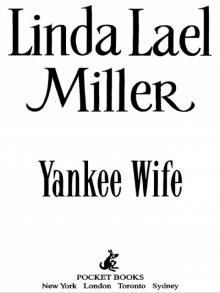 Yankee Wife
Yankee Wife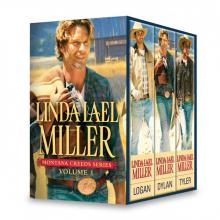 Linda Lael Miller Montana Creeds Series Volume 1: Montana Creeds: LoganMontana Creeds: DylanMontana Creeds: Tyler
Linda Lael Miller Montana Creeds Series Volume 1: Montana Creeds: LoganMontana Creeds: DylanMontana Creeds: Tyler The Christmas Brides
The Christmas Brides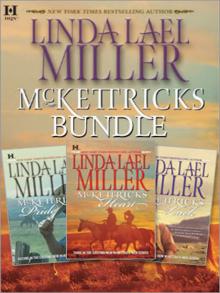 McKettricks Bundle
McKettricks Bundle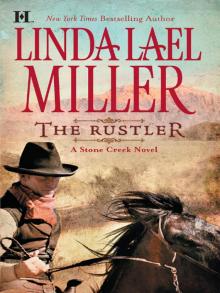 The Rustler
The Rustler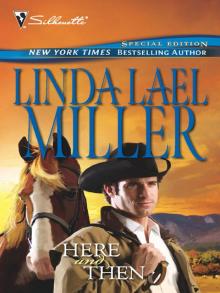 Here and Then
Here and Then Only Forever
Only Forever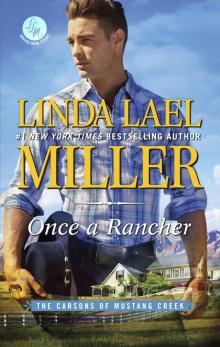 Once a Rancher
Once a Rancher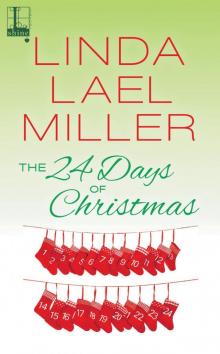 The 24 Days of Christmas
The 24 Days of Christmas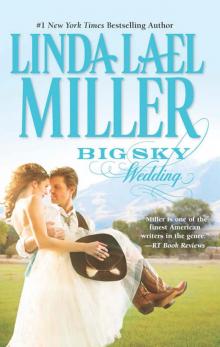 Big Sky Wedding
Big Sky Wedding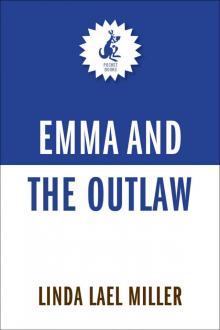 Emma and the Outlaw
Emma and the Outlaw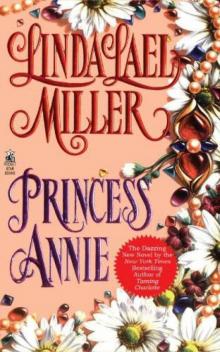 Princess Annie
Princess Annie Wild About Harry
Wild About Harry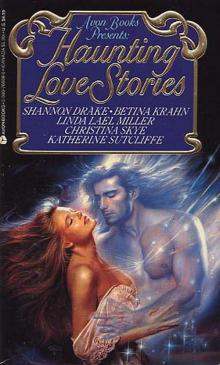 That Other Katherine
That Other Katherine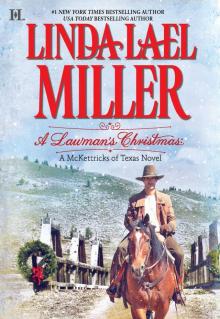 A Lawman's Christmas: A McKettricks of Texas Novel
A Lawman's Christmas: A McKettricks of Texas Novel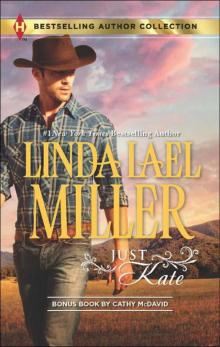 Just Kate: His Only Wife (Bestselling Author Collection)
Just Kate: His Only Wife (Bestselling Author Collection)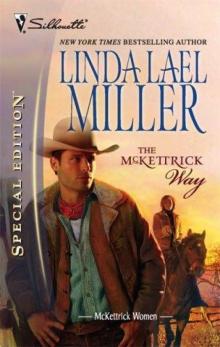 The McKettrick Way
The McKettrick Way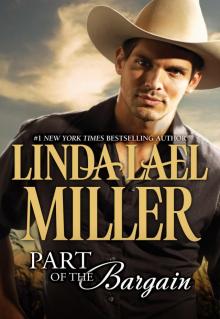 Part of the Bargain
Part of the Bargain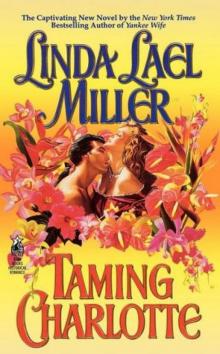 Taming Charlotte
Taming Charlotte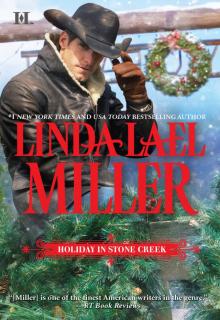 Holiday in Stone Creek
Holiday in Stone Creek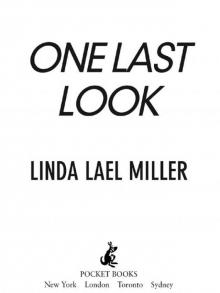 One Last Look
One Last Look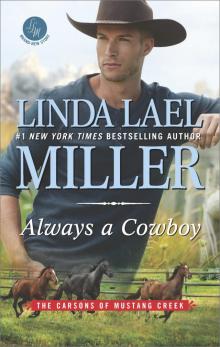 Always a Cowboy
Always a Cowboy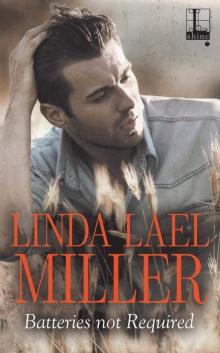 Batteries Not Required
Batteries Not Required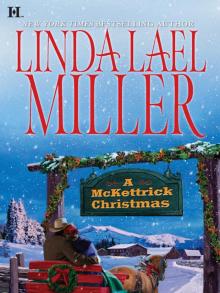 A McKettrick Christmas
A McKettrick Christmas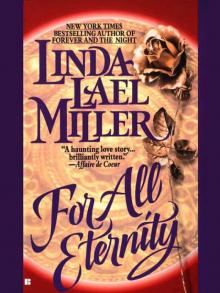 For All Eternity
For All Eternity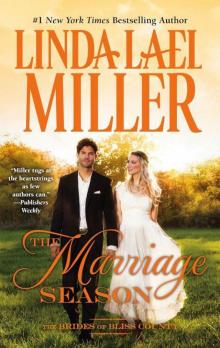 The Marriage Season
The Marriage Season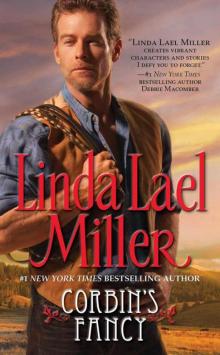 Corbin's Fancy
Corbin's Fancy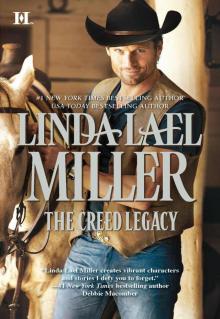 The Creed Legacy
The Creed Legacy Springwater Wedding
Springwater Wedding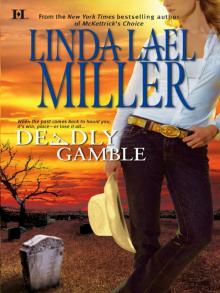 Deadly Gamble
Deadly Gamble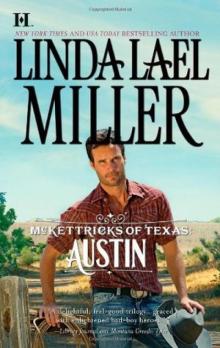 Austin
Austin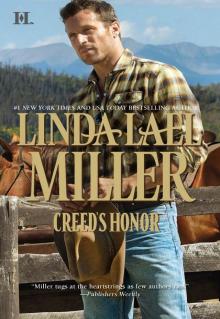 Creed's Honor
Creed's Honor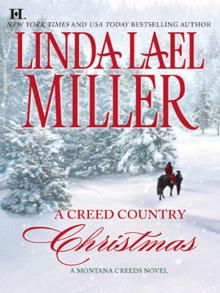 A Creed Country Christmas
A Creed Country Christmas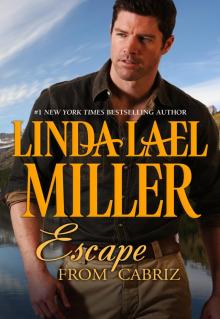 Escape from Cabriz
Escape from Cabriz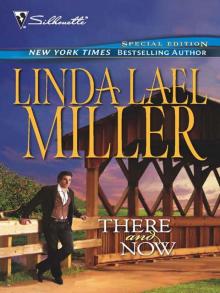 There and Now
There and Now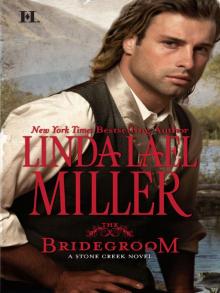 The Bridegroom
The Bridegroom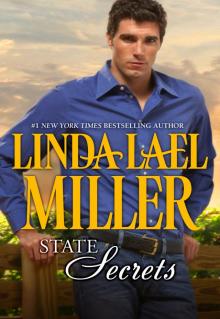 State Secrets
State Secrets Bridget
Bridget